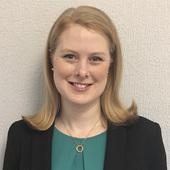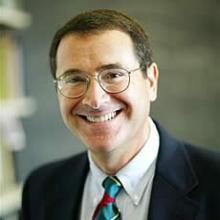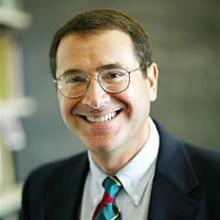The Greening of Pope Francis
Pope Francis is poised, within the next two or three months, to announce one of the signature documents of his papacy, an encyclical on climate change. And we can hope and pray that it will be "world-changing" in the very best sense of that expression.
If he sticks to the schedule he has publicly announced, he should, at this very moment, be putting the finishing touches on the final version. It will then be forwarded to translation teams that will prepare official texts in a number of different languages for publication in June or July.
The encyclical has yet to appear, but we can still surmise some of its main themes in light of Pope Francis' own statements on the environment. First, it seems that the Pope is not a newcomer to environmental concerns. He has said that events in Latin America years ago forced him to confront the catastrophe of environmental degradation. Bishops in Brazil, he has said, first explained to him the deforestation of the Amazonian rain forest. Deeply moved by this tragedy, Pope Francis now sees the rain forest as "one of the world's lungs." For a man who is missing part of a lung himself, this is a meaningful metaphor. He knows, more than most, how essential a lung is to life.
The Pope is surely right to warn the world about the on-going loss of the rain forest. National Geographic estimates that in the last forty years around 20 percent of the rain forest has been cut and the land cleared for other uses. This is a disaster both regionally and globally. Regionally, natural habitat for animals and plants is wiped out, causing a loss of biodiversity. But globally, the loss of forest canopy accelerates the process of climate change. The Pope knows this and means to do something about it.
But Pope Francis has hinted that his thoughts now go well beyond a concern with deforestation, as important as that is, and embraces something more profound. In a homily preached in February, he connected environmentalism with the Christian faith. God made the world and all that is in it out of an act of love. If creation is an act of love, the proper way for Christians to reciprocate is to tend to the world. "A Christian who does not protect Creation, who does not let it grow, is a Christian who does not care about the work of God, that work that was born from the love of God for us."
Taken seriously, what the Pope is saying is that environmentalism is not an option for the Christian, but a requirement of heart and mind and conscience. It is a primary demand of the Christian faith. The environment, Pope Francis emphasizes, is not an issue that belongs to a single party or faction. It is not something that can be neatly labeled "the greens." No, he has said, it belongs to the world and is the responsibility of every Christian.
Pope Francis has also made it clear that he takes seriously the science of human-induced climate change. To members of the scientific community, to the world's knowledge classes, this may not come as big news. They may be tempted to shrug and say, "well, everybody knows that."
Except that is not the case. In the United States, the dominant voices of one of two major political parties -- the Republicans -- are on record as expressing their doubts about human-caused climate change.
John Boehner, the Republican Speaker of the House and a professed Catholic, has publicly declared that he is agnostic on the subject of climate change, which he considers a debatable topic. Ted Cruz, the colorful Texas Senator running for President, has theatrically denounced climate change as deceitful and false and compared climate scientists to flat-earthers. In saying these things, Republican politicians are in lockstep with their fundamentalist Christian base, who reject the science of climate change out of hand.
It is significant, therefore, and of benefit to the health of the planet, that the leader of the world's largest Christian movement accepts human-induced climate change as scientifically established and will issue a call to action on that basis. And that summons to act will take into account, first of all, the threat climate change poses to humanity. The Pope has talked to farmers displaced from their fields by flood or drought, and he has visited typhoon victims in the Philippines and elsewhere. He knows first-hand -- he has toured the devastation -- the impact climate change is having on coastal communities. And he knows that human-induced climate change is an affront to God's loving gift of Creation.
The summons to act will likely have yet another dimension, and that is economic. For Pope Francis, most of the ailments of the contemporary human condition are traceable back to the inhumane uses of capital. We have become a throwaway society. We discard unwanted people, whether they be convicts in prison, or the elderly, or the poor, or the handicapped, or the infirm. Those who are unable for whatever reason to serve the interests of capital have no place in the modern dispensation.
"We discard unwanted people, whether they be convicts in prison, or the elderly, or the poor, or the handicapped, or the infirm. Those who are unable for whatever reason to serve the interests of capital have no place in the modern dispensation."
My guess is that Pope Francis is prepared to extend this line of reasoning to the degradation of the planet. Runaway capital is not only destroying individual lives, but is jeopardizing the health and well-being of all of humanity.
And Pope Francis is prepared to go "big," as they say. He has indicated that he will invite leaders of other religious faith to join him in meetings. He will not issue the encyclical as part of a joint declaration with other faiths, he has made that clear. But he hopes to form a world-wide network of believers, Christian and non-Christian alike, dedicated to a greener earth. He is even making plans to present his case to the United Nations. I can hardly wait. For Pope Francis' planned encyclical may be one of those rare papal documents that shift the public debate for generations.
To follow what's new on Facts & Arts please click here.
This article is brought to you by the author who owns the copyright to the text.
Should you want to support the author’s creative work you can use the PayPal “Donate” button below.
Your donation is a transaction between you and the author. The proceeds go directly to the author’s PayPal account in full less PayPal’s commission.
Facts & Arts neither receives information about you, nor of your donation, nor does Facts & Arts receive a commission.
Facts & Arts does not pay the author, nor takes paid by the author, for the posting of the author's material on Facts & Arts. Facts & Arts finances its operations by selling advertising space.

















